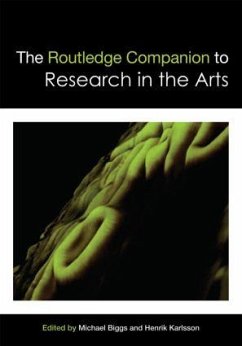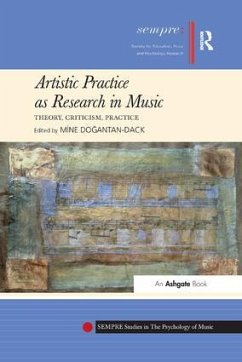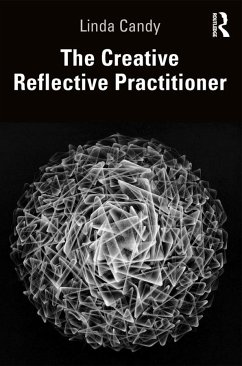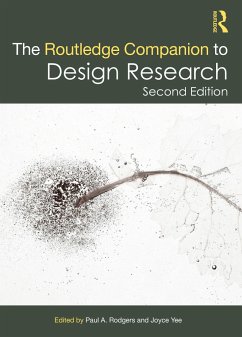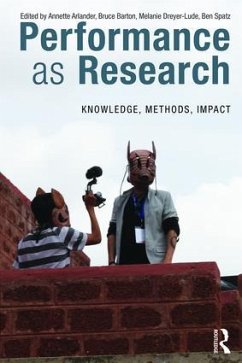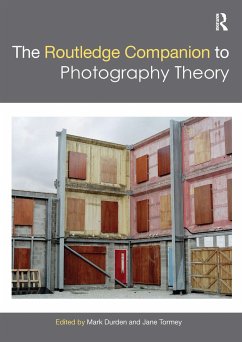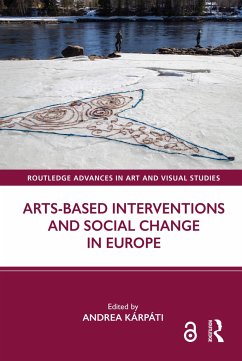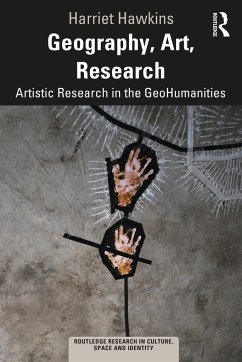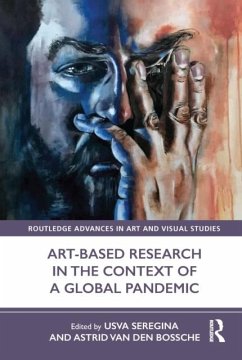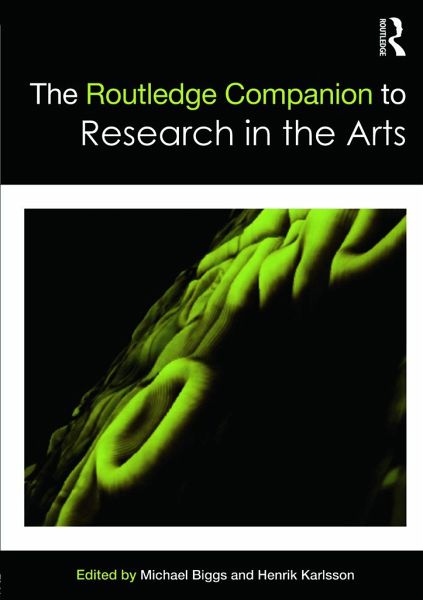
The Routledge Companion to Research in the Arts
Versandkostenfrei!
Versandfertig in 1-2 Wochen
66,99 €
inkl. MwSt.
Weitere Ausgaben:

PAYBACK Punkte
33 °P sammeln!
The Routledge Companion to Research in the Arts is a major collection of new writings on research in the creative and performing arts by leading authorities from around the world. It provides theoretical and practical approaches to identifying, structuring and resolving some of the key issues in the debate about the nature of research in the arts which have surfaced during the establishment of this subject over the last decade.Contributions are located in the contemporary intellectual environment of research in the arts, and more widely in the universities, in the strategic and political envir...
The Routledge Companion to Research in the Arts is a major collection of new writings on research in the creative and performing arts by leading authorities from around the world. It provides theoretical and practical approaches to identifying, structuring and resolving some of the key issues in the debate about the nature of research in the arts which have surfaced during the establishment of this subject over the last decade.
Contributions are located in the contemporary intellectual environment of research in the arts, and more widely in the universities, in the strategic and political environment of national research funding, and in the international environment of trans-national cooperation and communication. The book is divided into three principal sections - Foundations, Voices and Contexts - each with an introduction from the editors highlighting the main issues, agreements and debates in each section.
The Routledge Companion to Research in the Arts addresses a wide variety of concepts and issues, including:
the diversity of views on what constitutes arts-based research and scholarship, what it should be, and its potential contribution
the trans-national communication difficulties arising from terminological and ontological differences in arts-based research
traditional and non-traditional concepts of knowledge, their relationship to professional practice, and their outcomes and audiences
a consideration of the role of written, spoken and artefact-based languages in the formation and communication of understandings.
This comprehensive collection makes an original and significant contribution to the field of arts-based research by setting down a framework for addressing these, and other, topical issues. It will be essential reading for research managers and policy-makers in research councils and universities, as well as individual researchers, research supervisors and doctoral candidates.
Contributions are located in the contemporary intellectual environment of research in the arts, and more widely in the universities, in the strategic and political environment of national research funding, and in the international environment of trans-national cooperation and communication. The book is divided into three principal sections - Foundations, Voices and Contexts - each with an introduction from the editors highlighting the main issues, agreements and debates in each section.
The Routledge Companion to Research in the Arts addresses a wide variety of concepts and issues, including:
the diversity of views on what constitutes arts-based research and scholarship, what it should be, and its potential contribution
the trans-national communication difficulties arising from terminological and ontological differences in arts-based research
traditional and non-traditional concepts of knowledge, their relationship to professional practice, and their outcomes and audiences
a consideration of the role of written, spoken and artefact-based languages in the formation and communication of understandings.
This comprehensive collection makes an original and significant contribution to the field of arts-based research by setting down a framework for addressing these, and other, topical issues. It will be essential reading for research managers and policy-makers in research councils and universities, as well as individual researchers, research supervisors and doctoral candidates.





